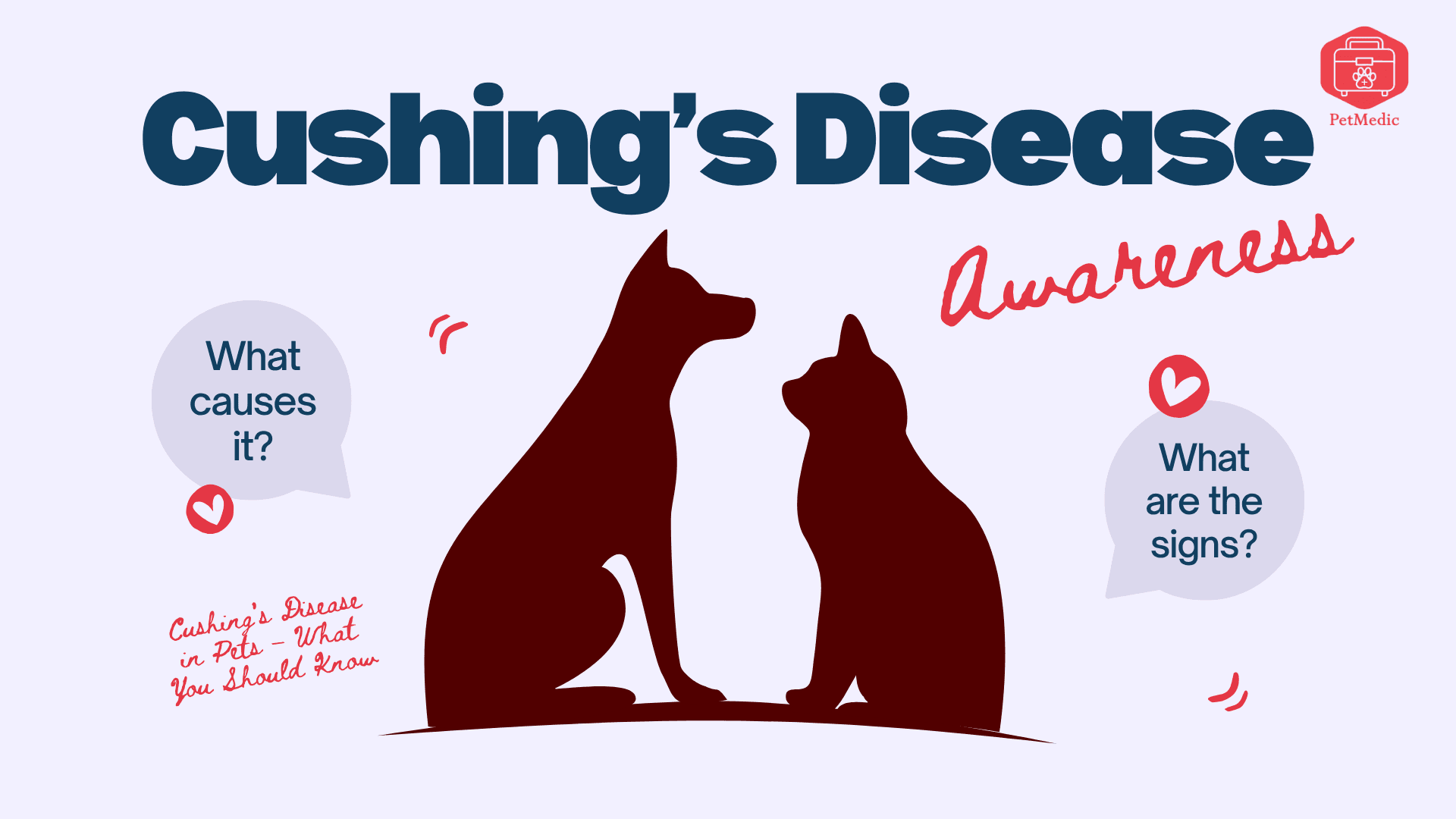Cushing’s Disease in Pets – What You Should Know

Cushing’s disease is a condition that happens when your pet’s body makes too much of the stress hormone called cortisol. While some cortisol is important for your pet’s health, too much can cause serious problems over time.
It mostly affects middle-aged to older dogs but can also happen in cats (though much more rarely).
What Causes It?
There are a few possible causes:
- A small tumor in the brain (pituitary gland) – This is the most common cause.
- A tumor in the adrenal gland (next to the kidneys) – Less common, but sometimes more serious.
Long-term use of steroid medications – This can also lead to Cushing’s, but it’s reversible with vet help.
What Are the Signs?
Pets with Cushing’s disease often show these symptoms:
- Drinking and peeing a lot more than usual
- Always feeling hungry
- Big, round “pot belly”
- Hair loss or thinning coat
- Thin skin or skin infections
- Panting, even when resting
- Low energy or tiredness
Cats with Cushing’s (which is rare) may have fragile skin and diabetes that’s hard to control.
How Do We Diagnose It?
Diagnosing Cushing’s can take time. Your vet may recommend:
- Blood and urine tests
- Special hormone tests (like the ACTH stimulation test or dexamethasone suppression test)
- Ultrasound to look at the adrenal glands
These tests help us confirm the diagnosis and decide on the best treatment.
How Is It Treated?
Most cases can be managed with daily medication, such as:
- Trilostane – helps control the amount of cortisol the body makes.
In some cases, like adrenal tumors, surgery might be needed.
If your pet’s Cushing’s is caused by long-term steroid use, we may slowly reduce the medication under close supervision.
Ongoing Monitoring
Pets with Cushing’s need regular vet checkups to:
- Monitor cortisol levels
- Adjust medication doses
- Check for side effects
With proper care, many pets live happy, comfortable lives even with this condition.
When to Call or Visit Your Vet
If your pet is:
- Drinking and urinating more
- Losing hair or looking bloated
- Always hungry or acting tired
Don’t wait — these could be signs of Cushing’s disease or another health issue.
Cushing’s disease can sound scary, but the good news is — with early diagnosis and the right treatment, we can help your pet feel better and live a good life.
